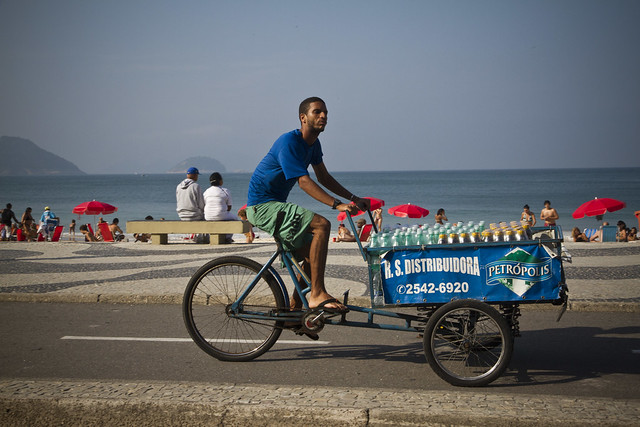The real problem is convincing people there is a problem. I grew up in suburban America and almost everyone got a car when they turned 16. A 15 minute drive was considered not that far away. My bus ride to school was about 45 minutes. I went to college in a large dense city and it opened my eyes to how things could be so much better. Unfortunately most people who live where I grow up would say “you’re going to get shot and die” if you get anywhere near a city.
The level of paranoia that suburbanites have about density is horrendously upsetting and intentional
Trying to tell a suburbanite that crime rates have fallen drastically over time is so damn hard
Just look at per capita crime rates. US cities are typically less dangerous than suburban areas.
New York City has a per capita crime rate of 6.3 per 100,000.
Huntsville, AL has a crime rate of 387 per 100,000.
And that difference was actually a huge surprise to me when I just looked it up. But the problem is people look at the raw number of crimes committed and think cities are so dangerous. It’s actually the opposite.
Does that distinguish between violent crime vs property crime? I always heard that violent crime is a little higher in cities, while property crime is a lot higher in suburbs, but I never bothered to fact check because the (dense city) neighborhood I grew up in only had one stabbing in 20 years, so it seemed safe enough…
While I understand that not everyone is educated on these issues, I grew up in the suburbs and I always knew it was fucked, even if I didn’t know what a better system looked like. I really don’t understand how people can see that and think it’s somehow good.
Do they really think suburban and rural areas are different?
At this point we have to commit guerrilla warfare against the oversized, homicidal cars
In europe there was a movement to slash the tires of oversized SUVs. Wish that movement would extend to America
The issue is that in the US your knife would get dull before you get anywhere.
deleted by creator
I’m not convinced that wishing for tramways on every street is a smart move on behalf of all bikers, scooter riders, and others.
Source: my bike commute included streets with tramways.
Tramways on every other street! Gotta balance bikes and public transit.
A street can easily handle bikes and public transit if it is well planned. But I also lean towards busses and subways, tramways only where it can be isolated from other traffic.
Also, on busy streets bycicles and scooters should have their own lane. Streets too small for that shouldn’t be busy…
Yep, my girlfriend fell down one time on her bicycle because of some newly installed tram tracks she was unaware of.
Even if you know they are there, they pose a risk for bikers. I once nearly fell when I had to evade a traffic situation which led me directly into the tracks.
I’m All for banning cars. But we need to make sure we don’t catch small business deliveries up in the crossfire. Commercial vehicles are still an absolute necessity without a massive change no one’s figured out how to accomplish yet. I’m thinking mostly in my city. Ban cars, let commercial trucks through.
Basically no one here has ever advocated for banning delivery vehicles, just private cars.
Yeah, I just meant the “weight restrictions” bullet point would catch all delivery vehicles up in the ban. That’s all I was saying.

deleted by creator
I really like to ride the tramway, but they are loud and dirty. I also fear every morning, when my children have to cross the tracks on their way to school, since a child was run over by one a year ago. I am somewhat torn here between tramways and busses therefore.
Just a note that a lot of these would be very negatively impactful on many lower income level people who depend on what transportation they can manage. If there was a fast move to replace the needs with public infrastructure like rail and bus, then maybe the financial hit would be less for them. “Get a job within walking or bike” doesn’t always work out.
This problem is less significant if the transit is free. Even if the transit isn’t free if transit is roughly the same speed as taking a car it would be far cheaper than car ownership.
And it could (and is in many places) be subsidised for low income people too, if free transit isn’t politically viable. And the money raised from some of the other measures like congestion pricing and carbon pricing could partially be returned to low income people as well, with the rest going to further roll out public transit and active transport options.
roughly the same speed as taking a car
Yeaaaaah no, not even remotely true. And i say that as a bus driver (king county metro so Seattle and surrounding areas.) Even on my express routes that shoot down main roads or highways with minimal stops, taking your car directly will get you from one end of the line to the other in less than half the time.
You literally just can’t make public transit the same speed, direct A >B with no stops will always be faster, especially when people REFUSE to be fucking ready to go when i pull up. Most people are but all it takes is ONE person who waits till after I’ve pulled up, they waited to step in, and ONLY THEN do they bring out their bag and start digging for their money/orca now making the whole route 3min behind. Before long the route is 10min+ behind
You are public transit relying on the same infrastructure and priority cars are. High speed rail, trams with dedicated right of ways and removing right of way from cars all can speed transit up and make it more competitive with cars. Buses are one of the lowest tiers and lowest quality of transit.
Hey maybe I’ve ridden on your bus before! Honestly, we need more protected bus only lanes, like not share with HOV at all. This would be a big boon especially on the 520 bridge. I think that + traffic light priority would be a big step forward. fuck cars
It would not solve much because it’s never going to be enforced by traffic police. There are several sections in Bellevue and in certain parts of Seattle where the lane is already dedicated 100% bus only but that doesn’t stop people from blocking the lane traveling in it and just otherwise making the lane worthless.
I think my absolute favorite is on Aurora where people will start accelerating to get up in front of me, only to cut me off so that they can pull into a parking lot. It’s not like they didn’t know that the bus was just traveling forward and wasn’t going to stop or turn into a parking lot, but they felt the need to accelerate and pass the bus so that they could get in front of it and then practically come to a stop to make a turn
Saying “yea but it has to be done right” is such a load of wasted time and energy that you may as well not bother at all. You think people aren’t going to try to get it right? These aren’t the people you need to convince, they know this already.
I’m also curious as what “a lot” of these actually means because most of them don’t apply to poorer people in the slightest. The only ones I can think of are carbon taxes and weight taxes but:
- carbon taxes often have a rebate that either covers or exceeds an individual’s costs but hits the extreme users like companies with fleets.
- poor people buying large expensive vehicles really doesn’t make a lot of sense, now does it? It can happen at point of purchase, at least for a little bit, to both not be suddenly dumped on people AND encourage people to keep their cars for longer instead of swapping them out too regularly.
You’re not saying anything except, especially without any sort of explanation, that you don’t have a firm enough grasp of the situation to be making comments.
—
Universal speed limiters ARE a waste of time, of course, when we can just build our roads right to naturally slow people.
Trams on every streets would be a tremendous waste of money as well, but a fairly dense network would be pretty feasible.
We also don’t actually need bike lanes on every street, just on streets busy and fast enough to warrant separating the traffic.
The only thing I can think of is that land value tax actually will just get passed to renters, and anyone just barely owning their home is gonna be fucked if another price jump like what’s going on now happens. But that, too, can be fixed.
That’s actually the neat thing about land value taxes; both in economic theory and observed practice, they can’t be passed on to tenants.
It would absolutely be a boon for the poor if we replaced other forms of taxation (such as on sales and income) with land value taxes. Plus, land value taxes tend to make housing cheaper, which helps the poor as well.
Well hot damn what are we waiting for? Where do I sign?
Replace all roads with free mass transit. That should work.










